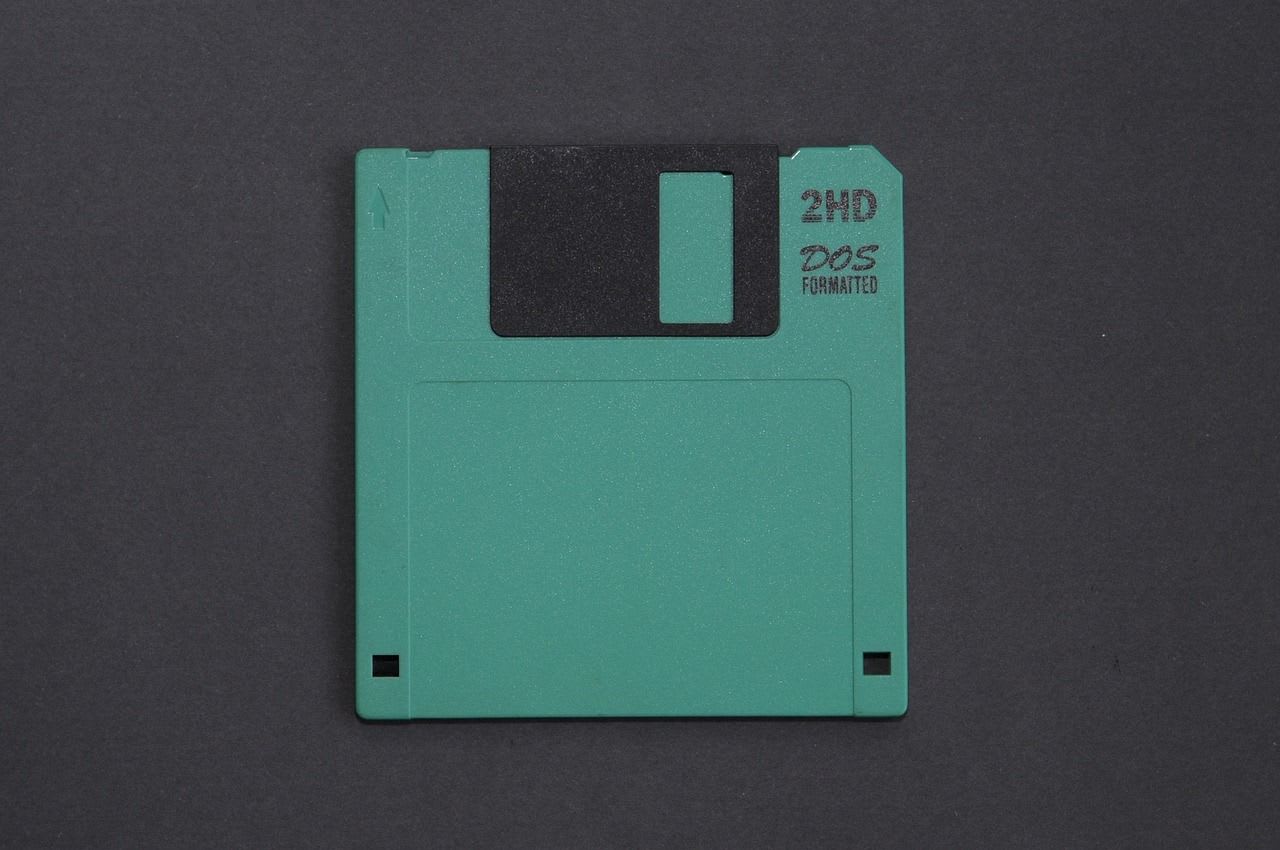This post is all about the benefits of choosing Electronic Data Interchange (EDI) over Secure File Transfer Protocol (SFTP). It’s also about choosing a comprehensive SFTP provider that offers more than just SFTP.
So, if you're a business stakeholder, developer, or anyone invested in the integrity of digital communications, this guide is for you. Join us as we paint a clear perspective on enhancing and securing data transfers for your business.
EDI message formats vs. communication protocols
EDI is a concept and the realization of this concept comes in many flavors. Technically speaking, there are two parts to EDI; the message format and the communication protocol that’s used to transfer the messages between business entities (or their servers).
Message standards or formats define the common language and ensure that message data is consistent and readable to both parties in the message transaction. They’re pretty standard, as the name suggests. These include ANSI x12, EDIFACT, EANCOM, ODETTE, EDI XML, and more, all dependent on your industry and your region.
The communication protocol is all about ensuring the secure transmission of the EDI messages, but also in setting rules for addressing, error handling, and acknowledgments. Security specifications are also part of the communication protocol.
The protocol is generally mandated by the larger (or initiating) business partner, but regardless of which partner you are, it’s worth considering whether the protocol you’re using is secure enough—and it’s worth suggesting a shift to a more secure option, if need be.
The most popular protocol used with EDI is AS2, but it's a headache to set up—and if your business partner doesn't force you to use AS2, SFTP can be a worthwhile alternative.
Here’s why.
SFTP vs. AS2
It’s important to note that, while businesses often compare and choose between the two, AS2 is defined as strictly an EDI protocol, while SFTP is a more general protocol determining a series of authentication and security measures during transit and file management.
SFTP is inherently simple and integrates seamlessly with standard file system operations, making it more straightforward for many organizations to adopt without the need for specialized software.
Both protocols are designed with data security in mind, but the foundation and operation of SFTP provide unique strengths.
SFTP's reliance on the widely-accepted and robust SSH (Secure Shell) protocol ensures end-to-end encryption. It ensures that data is encrypted during transit, providing comprehensive protection against eavesdropping and unauthorized access.
SFTP can also be more cost-effective, as it doesn't always necessitate dedicated infrastructure or extensive setup or maintenance costs, particularly with advanced and full-managed services like SFTP To Go.
SSH employs a range of modern cryptographic algorithms and provides strong resistance against key EDI threats, such as man-in-the-middle attacks, thanks to its inherent host-key verification mechanism.
On the other hand, AS2 relies on digital certificates for encryption and signatures, which, while secure, can be cumbersome to manage and renew, especially for businesses with multiple trading partners.
The flexibility of SFTP in terms of authentication is another plus; it supports both password-based and public key authentication, so organizations can choose the method best suited for their security needs.
Now, let’s take a closer look at what makes security in EDI so important and why, even as the smaller business partner, you should consider suggesting a more holistic and secure protocol, like SFTP, and a more comprehensive provider, like SFTP To Go.
Why security is so imperative in EDI
In the context of EDI, data represents critical business intelligence.
This means all sorts of private, confidential, sensitive information about your business, your suppliers, your clients, and your process is essentially at risk during transit.
This is where robust security protocols, like those offered by SFTP, become indispensable.
Cyber threats can compromise treasure troves of EDI data and cost companies, on average $3.62 million per data breach. These include:
Man-in-the-middle attacks (MitM):
Here, attackers exploit vulnerabilities in the communication protocol or use tools like ARP spoofing to intercept and potentially alter the data packets exchanged between the sender and receiver.
The risks include data manipulation, unauthorized transactions, or information theft.
Data breaches:
These often result from perpetrators discovering and exploiting software vulnerabilities.
The impacts include exposure of sensitive transaction details, leading to financial losses or reputational damage.
Eavesdropping:
This refers to passive listening to the network traffic, often facilitated by weak encryption or lack of encryption in data transmission.
The result? Unauthorized access to sensitive transaction data.
Impersonation and spoofing:
Attackers use techniques like DNS spoofing or certificate spoofing to impersonate a legitimate EDI partner.
The risks include unauthorized transactions, data theft, or data manipulation.
Tampering:
Attackers modify the content of EDI messages, often exploiting weak checksums or lack of message authentication.
This can lead to erroneous transactions, financial losses, or supply chain disruptions.
Software vulnerabilities:
Perpetrators exploit known vulnerabilities in EDI software or associated infrastructure. The damage includes data breaches, unauthorized access, or system compromise.
Implementing robust security measures like SFTP can mitigate these risks, as we’ve already stated, but let’s check out those security benefits in detail.
EDI over SFTP: security benefits
End-to-end encryption:
SFTP ensures data confidentiality and prevents eavesdropping by using strong encryption algorithms to encrypt data during transit.
Strong authentication mechanisms:
It also supports multiple methods such as public key authentication, password-based authentication, and hardware-based authentication, ensuring that only legitimate entities can initiate and accept file transfers.
Authorization:
SFTP servers can be configured to provide granular access controls. This means specific users or groups can be given permissions to read or write only certain files or directories, ensuring that users can only access data they are authorized to view or modify.
Data integrity:
Secure File Transfer Protocol uses HMAC (Hash-based Message Authentication Code) to ensure that the EDI data has not been tampered with during transit, guaranteeing the authenticity and integrity of the transferred data.
Network security (firewalls):
SFTP operates over the standard SSH port (default port 22), which is firewall-friendly.
This allows for easy integration with existing network security infrastructures and ensures that data transfers are protected by existing firewall rules and policies.
Identity management:
Integration with enterprise identity management systems ensures that user identities are consistently managed.
This aids in user provisioning, de-provisioning, and ensuring that only valid users can access the SFTP server.
Disaster recovery:
SFTP solutions can be integrated with disaster recovery plans. Regular backups of the SFTP server, its configuration, and the data it holds ensure quick recovery in case of any unforeseen events or failures.
SFTP To Go: elevating EDI over SFTP data security—even more
Our fully-managed SFTP platform will ensure that EDI data is not just transmitted, but also safeguarded every step of the way.
That’s because, while SFTP To Go boasts all the advanced security features of SFTP, it brings additional security, reliability, and convenience benefits as well.
SFTP To Go provider benefits:
Advanced encryption:
While standard SFTP ensures data encryption in transit via advanced encryption mechanisms, SFTP To Go enhances security even further by encrypting data at rest using AES-256 bit server side encryption.
Cloud security:
Our SFTP servers are hosted in the cloud, so they inherit the security benefits provided by the AWS cloud, including data redundancy, encryption at rest, and advanced threat detection mechanisms.
Seamless EDI integration:
SFTP To Go's architecture is tailored for easy integration with a wide range of EDI systems. Webhooks allow for immediate notifications when files are uploaded, so you can process them immediately without having to poll periodically for new files.
Resilient data transfer and cloud accessibility:
SFTP To Go's robust infrastructure includes clusters of servers that handle and optimize SFTP connectivity, and an Amazon S3 storage layer that is durable, scalable, and highly available.
This design ensures no single point of failure, and guarantees the integrity of general, large, and critical file transfers.
Easy file and directory management:
SFTP To Go offers an intuitive interface for users to efficiently manage their EDI data files, with no need for an SFTP client.
Firewall optimization:
SFTP To Go is designed for optimal compatibility with firewall configurations, ensuring smooth data transfers even in environments with strict network rules.
This is achieved first through the use of static IPs, so if a party is on a restricted private network, they can add outbound network rules to SFTP To Go’s IP addresses.
Secondly, users can be assigned inbound network rules, from which IP address connections can be made.
Importantly, users needn’t open inbound traffic to their network because the SFTP server is not hosted in their network, it’s hosted and fully managed in the cloud by SFTP To Go.
Granular audit and logging:
SFTP To Go provides an enhanced logging system, offering detailed insights into every EDI data transfer, aiding in both troubleshooting and compliance tracking.
Streamlined user management:
SFTP To Go streamlines user management by offering an intuitive interface and integration with enterprise identity management systems.
This simplifies the process of user provisioning and de-provisioning, ensuring only authorized individuals have access.

In Conclusion
SFTP To Go is a highly secure SFTP platform with all the data safety, reliability, and scalability benefits of an Amazon S3 storage layer.
Ensuring the security of EDI exchanges, our platform brings a platinum standard of data integrity and protection measures. Of course, you’ll still need to follow recommended best practices for EDI over SFTP.
SFTP To Go incorporates SFTP’s security with S3’s reliability and data backup features and, with the combination of EDI's efficiency and SFTP To Go, your business will be well-equipped to manage the threats posed by digital communication.

Frequently Asked Questions
What is EDI in digital business communication?
EDI, or Electronic Data Interchange, is a standardized communication protocol allowing businesses to transmit data electronically between systems in a specific format. It streamlines the sharing of business documents, such as invoices, purchase orders, and shipping notices.
How does EDI improve business efficiency?
EDI replaces traditional paper-based methods, enabling real-time electronic exchanges of business documents. This leads to faster transactions, reduced errors, and overall improved operational efficiency.
What is the role of SFTP To Go in data security?
SFTP To Go ensures the secure transmission of data. It provides robust security measures to protect data integrity during exchanges, safeguarding businesses from potential breaches or data losses.
Are there alternatives to EDI for digital business communication?
Yes, while EDI is a popular choice, there are other methods like API integrations, web services, and manual data entry. However, EDI remains a preferred option for many businesses due to its proven efficiency and widespread adoption.
How does EDI differ from traditional business communication methods?
Traditional methods often involve paper-based communications, manual data entry, and slower processing times. In contrast, EDI automates and digitizes the process, ensuring faster, more accurate, and efficient communication between business systems.

